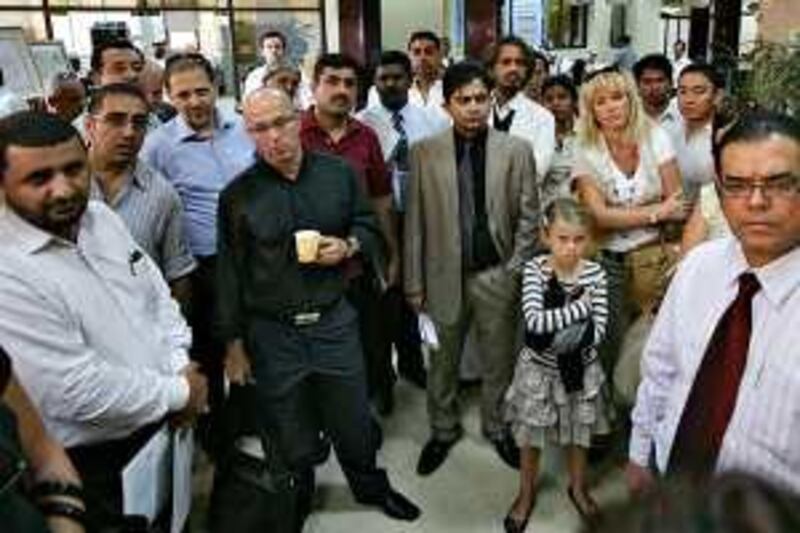The Dubai Land Department (DLD) will investigate complaints over the stalled Nakheel Palm Jebel Ali project after about 125 disgruntled property buyers petitioned the authority. Nakheel has offered investors alternative homes in other projects that are either completed or already under construction, including at International City, Jumeirah Heights and Al Furjan. "After patiently waiting for seven years and putting all of our hard-earned money into this project, we are being given the option to transfer to inferior properties which are not in the same league as those promised to us," the investors said in a letter to the DLD. "This is not what was sold to us." An official said the department would compile a report on the situation.
Palm Jebel Ali, the second part of the Palm island trilogy, was launched by Nakheel in 2003 and was designed to accommodate up to 250,000 people and add 70km of beachfront to Dubai. Work came to a standstill on the vast artificial island development after property prices started to tumble last year. "We cannot comment on individual cases other than reinforcing that customers will be given a range of options within the wider Nakheel portfolio to transfer their investment," a Nakheel spokeswoman said.
"Investors have the option of consolidation if they own other properties within the Nakheel portfolio. "The advantage of this option to the investor is that Nakheel is able to hand over property to the owner sooner than it might on Palm Jebel Ali and help investors experience an earlier return on investment." That did not pacify investors, some of whom have sunk more than Dh15 million (US$4m) into a project where prices have fallen by about 45 per cent from their peak in the third quarter of last year.
"We own five properties there altogether," said Vinod Sudar, who is part of an investment consortium. "They need to compare apples to apples. We want them to go ahead with this project or give us equivalent properties." Robin Medenwaldt, who has paid Dh2.8m towards his investment, said that "people are getting nervous and have lost confidence. We wanted to live in that prestigious project. At the time, we felt it was a safe investment. It's curious to people how this can happen."
The investors have called on Nakheel to resume construction, register their plots with the DLD and officially agree to link further payments with construction milestones. "While the project is registered with the land department, the properties haven't been registered in our names," said Aarti Chana, a villa owner. "Nobody questioned it because they thought the project would go ahead as promised to us."
Thousands of investors put money into off-plan projects long before their investments would have been protected by an escrow account law was introduced in 2007. It states that all money collected by developers from investors must be placed in the account and used solely to finance construction. However, when the law was introduced, some developers were given special permits that exempted them from opening escrow accounts due to their size, reputation and strong guarantees of delivering on their promises.
Nakheel and Emaar Properties are thought to be among these companies, according to a property lawyer who asked not to be named. Investors today are feeling the brunt of the property sector fallout, where hundreds of projects have been delayed as developers struggle to raise cash to finish them. Some Dubai developers have encouraged home buyers involved in struggling projects to transfer their investments to other developments that are nearer completion, or have been completed.
"The unfortunate fact is, even if these investments were made with a long-term view, the world economic crisis certainly raised the level of risk involved," said Ian Albert, the regional director of the property consultancy Colliers International. agiuffrida@thenational.ae






